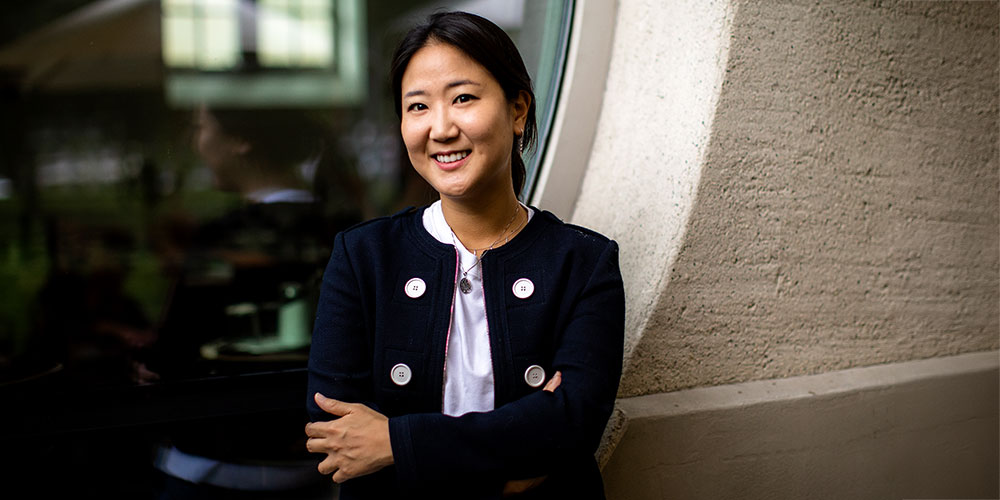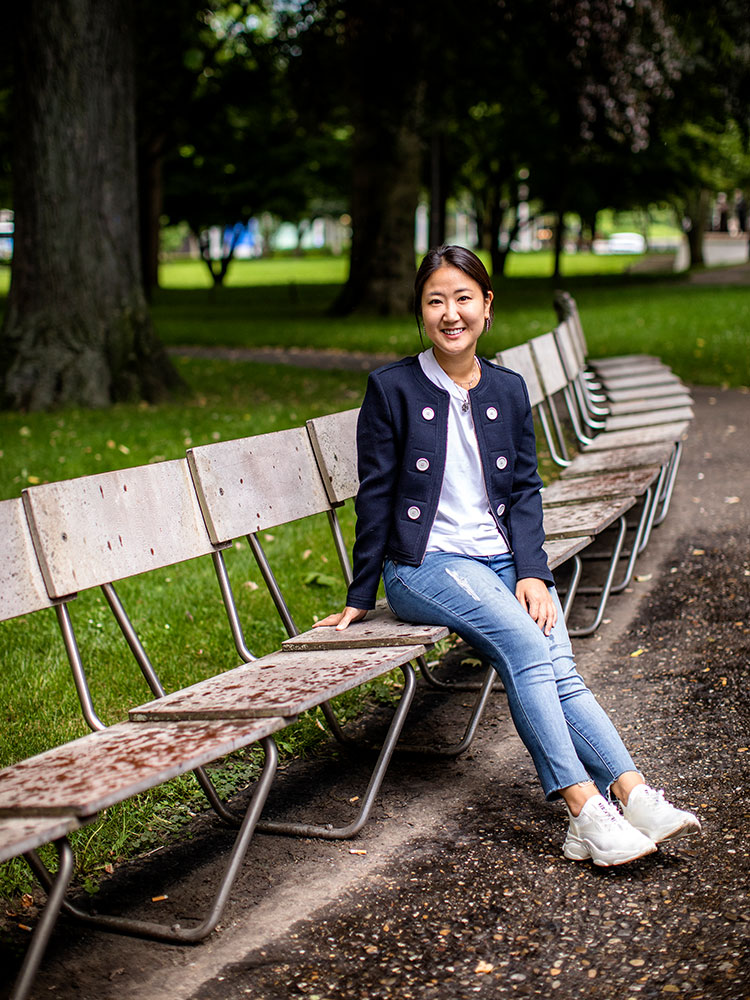In Focus: Jacqui Cho wants to translate her research on peacemaking in more hands-on ways
For a number of years, Jacqui Cho worked in conflict zones. Now, for a dissertation she is writing at swisspeace, she is researching how people in conflict areas perceive foreign mediation efforts.
11 July 2024 | Catherine Weyer
For Jacqui Cho, one thing is clear: when she completes her dissertation, she wants to apply what she’s researched in more concrete ways. “I’m quite open to what comes next. But I’d really like to do something more concrete and more tangible. Something that involves more interaction with people affected by the conflicts I’ve researched”. After three years of desk work, the doctoral student wants to get back to practice and to having closer interactions with people affected by violence. Before she started her doctorate, she worked for the UN and humanitarian NGOs, with stints in Kenya, Ethiopia, Sudan and Greece. Places that were closer to conflicts and their devastating human costs.
In recent years, the Korea-born academic has been dealing with a conflict and its resolution on a theoretical level. For her dissertation, Cho is researching how people perceive and interpret Switzerland’s diplomatic role in the Anglophone Crisis in Cameroon, also known as “Ambazonia” conflict. Between 2019 and 2022, Switzerland attempted to facilitate talks between English-speaking separatists and the French-speaking central government.
Switzerland’s largely unsung role as mediator
Cho traveled to Cameroon three times and interviewed members of various interest groups, making the most of her international network. “Positionality mattered a lot during my research. There’s a different level of openness if I’m seen to be researching the role of Switzerland as a researcher at a Swiss university, or more as an Asian woman asking about the conflict,” she says. In her interviews, though she was open about her affiliation with a Swiss university, she deliberately refrained from asking about Switzerland specifically. “If I didn’t mention it, few Cameroonians actually mentioned Switzerland and its role as a mediator first,” says Cho. “This shows me that Switzerland didn’t really manage to exert its full influence, as much as it hoped to.”
Although Cho has not yet completed her dissertation, she can already offer some interpretations of her findings. “It was certainly detrimental conducting mediation during the COVID crisis. Together with political sensitivities around the Anglophone crisis, it meant that few senior Swiss diplomats managed to spend sufficient time in Cameroon to build strong enough relations with different sides of the conflict.” Nor was there a written agreement between Cameroon’s President Paul Biya and Switzerland’s Department of Foreign Affairs. “This fueled mistrust around the Swiss process. Some senior people in the Cameroonian government didn’t even recognize Switzerland’s official role,” says Cho.
You have to be there
For the former UN humanitarian affairs officer, the move back to academia was not too much of a big step. “During my time at the UN, I drafted numerous reports and discussed a lot with colleagues about how we would craft and communicate our messages in ways that most appropriately reflect reality and are respectful of the people we are trying to support. That’s a lot like my day-to-day life with the doctorate,” she says.
Jacqui Cho misses being closer to the context she’s researching. “I have really enjoyed working on my dissertation,” says Cho. “But I just miss the deeper connection to the people I’m talking and writing about. I don’t think I can fully understand the conflicts if I’m not embedded there myself. I might probably never stop being seen as an outsider, but there’s still something about being part of the same daily rhythms of a place consistently.” Cho experienced just how profound these experiences can be in the Greek refugee camp of Moria on the island of Lesbos. She worked there as a volunteer during breaks from her bachelor’s degree at Cambridge.
Unequal treatment in the refugee camp
It was there that her interest in the African continent arose. “I was first in Moria at the height of the refugee crisis in 2015/6. I was expecting to meet refugees from Syria and Iraq. In fact, there were also many Africans who were fleeing. Their asylum applications took much longer to process and had less chance of success than those of people from the Middle East. It was there that I first became aware of the injustice of both the global media coverage and the asylum system.”
Cho returned to Cambridge after her assignment and studied African Studies to learn more about the continent’s history and politics. After she graduated, it was an accident - a gift that came from nowhere, she says - that brought her to the UN. “I had uploaded my CV to a UN platform while I was studying. A year or so afterwards, the recruitment office in Bonn contacted me out of the blue saying, we think your profile would fit this position in Kenya. Would you like to be put forward as a candidate? I had the interview a few weeks later and was offered the position. From that point, I rushed to finish the master’s dissertation that I was working on at the time, from Korea during COVID, flew to the UK to pack up my stuff, and within a month, I was in Nairobi.”
Despite her academic background and experience in Africa, Cho isn’t sure where her next job will take her. “I enjoy being in Africa, but I can imagine living anywhere as long as I find the work meaningful,” she says. She has been used to culture change since childhood. After spending the first eleven years of her life in Korea, she moved to Canada for a year and then to England. After finishing her PhD in Basel, she plans to move to the USA to live with her fiancé who is completing his medical training. “Hopefully we’ll be better equipped in the long-term to work closer to the field – wherever that might be”.
In Focus: the University of Basel summer series
The In Focus series showcases young researchers who are playing an important role in furthering the university’s international reputation. Over the coming weeks, we will profile academics from different fields – a small representative sample of the 3,000+ doctoral students and postdocs at the University of Basel.





